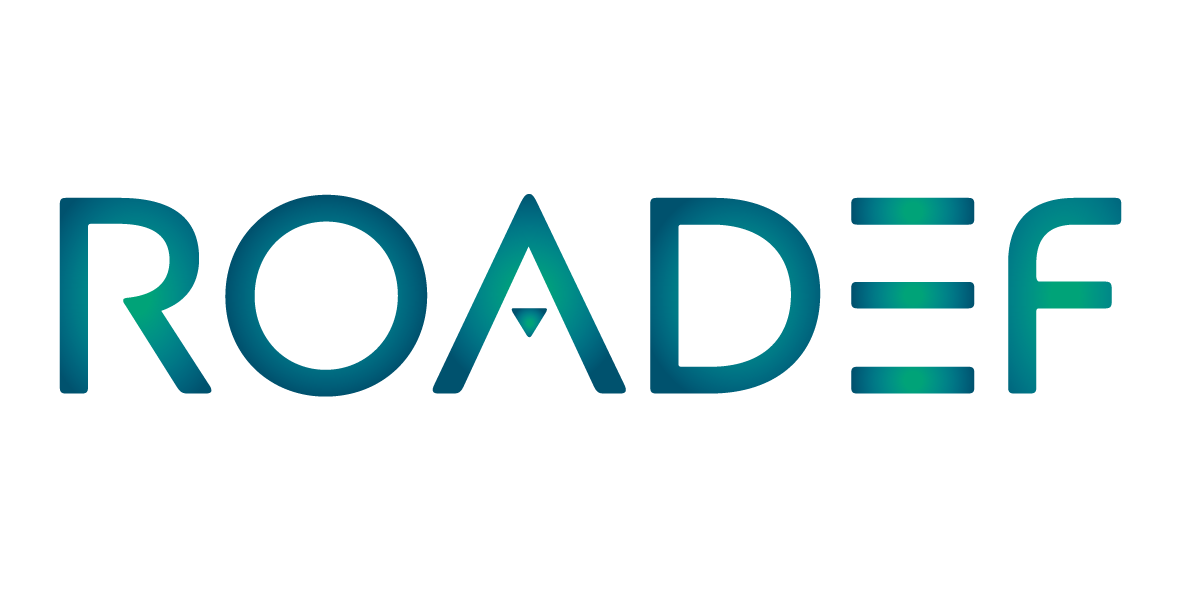Documents/Program submission for the ROADEF/EURO challenge 2016 Qualification phase
Registered participants shall send (before the deadline of the qualification stage) the following material:
- Team Id (provided upon registration) and category,
- An abstract (2 pages) of the proposed method including the characteristics of the computer used,
- A table giving the results and CPU times obtained on each instance,
- the solution files of each instance of set A,
- the program (see the subject).
All these documents shall be sent via email as a compressed archive to organisers with the subject " ROADEF/EURO challenge 2016 qualification material".
For our evaluation scripts, the participants are asked to provide an executable called challengeAL, with the following syntax: executable -t time_limit -p instance_name -o new_solution_filename -name -s seed
- -t time_limit to stop the program execution after time_limit seconds (caution: this is "real time", not cputime). The test machine will be totally dedicated and the tests will be done sequentially, therefore all the teams will have the same amount of CPU power. If program don't stop at time_limit, it is considered as infeasible.
- -p instance_name to load the data associated with the instance.
- -o new_solution_filename to designate the result file.
- -name to return the identifier of the team that is the author of the executable (if it is the only option the executable returns the team identifier and quits). The team identifier will be given to every team upon registration.
- -s seed force program with random to be
deterministic. The same seed will be used for each
team and each instance. Using the seed value passed
as a parameter to the executable program is under the
responsibility of participants to support the
repeatability of experiments/evaluations,
particularly, if their solution methods are based on
probabilistic frameworks or components
Programs will be evaluated only ONCE, never TWICE. If variability occurs, the organisers can not be responsible from potential bad behaviour on this single run.
For the qualification, the maximum execution time will be fixed to 30 minutes by instance.
Given a team T, for each instance I, let score(I,T) be the logisitic ratio score over I define in the subject (4.3.1) ; and best(I) the best score over instance I obtained among all participants.
Then norm_score(I,T)=1-exp((best(I)-score(I,T))/best(I)) is the team T's normalized score over instance I. It varies from 0 (the best) to asymptotically 1.
If team T happened not to submit any solution for an instance or if the solution is infeasible then we assign score as +infinity on this instance, so its normalized score is 1.
The global score of team T is the sum of its normalized scores over all instances A.
All programs respecting the above conditions will be ranked by increasing values of the global score.
